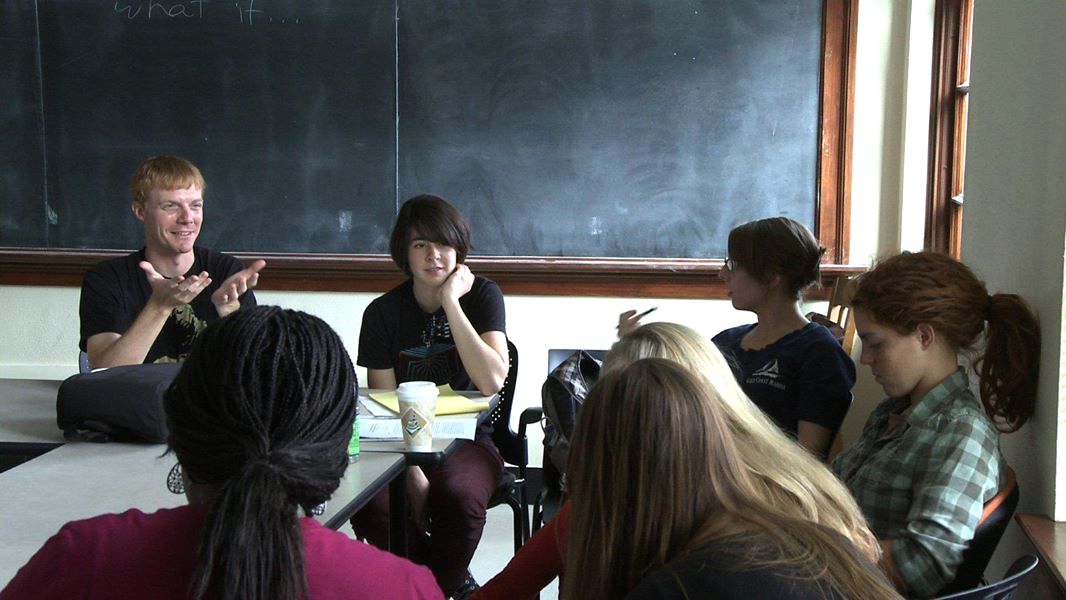In a post called “Kill Your Email” on his guest blog on the Powell’s site, best-selling author Neil Strauss made the statement that “most of us are constantly busy but not constantly productive.” It’s a simple, but key insight. At what point does your day consist of more distractions than plans? There’s a threshold in there somewhere, and finding it is crucial not only to getting things done, but to enjoying your everyday existence.
 We live in a veritable Age of Distraction. I mean, were you really planning to be reading this right now? Probably not. The web is just that, a web of distraction, and as bandwidth increases, the distractions get just that much more rich and entrancing (YouTube or Break, anyone?).
We live in a veritable Age of Distraction. I mean, were you really planning to be reading this right now? Probably not. The web is just that, a web of distraction, and as bandwidth increases, the distractions get just that much more rich and entrancing (YouTube or Break, anyone?).
Sure, one must be open to chancing upon new things. The ability to find something you didn’t know you needed to know or to happen upon a laugh that makes whatever you were supposed to be doing more bearable is one of the things that makes the web so appealing in the first place. Marshall McLuhan said that this was one of the more attractive things about the newspaper as well, the happening upon something you wouldn’t have found otherwise. “People don’t actually read newspapers,” McLuhan wrote in Understanding Media (McGraw-Hill, 1964), “They get into them every morning like a hot bath.” The serendipitous arrangement of the information in a newspaper is expanded, amplified, and “intertwingled” (as Ted Nelson would say) online.
One cannot plan for such serendipity, by definition, but one can allow for it. Finding a balance between being open for whatever and finding what you need or enjoying yourself is the difficult part.

This relationship exists both at the task level and at the macro scale, for the little day-to-day choices and the big, life-altering ones. There’s a threshold, a balance, in there somewhere, and finding yours is tantamount not only to getting your work done, but to enjoying your everyday existence. Chris Anderson pointed out in his book The Long Tail (Hyperion) that time is the one truly finite resource. Managing it well is a skill we’d all do well to master more proficiently, myself included.
I have an older laptop that doesn’t have built-in wifi. Often when I’m writing, I use it without the wireless card. I did that when I wrote my thesis, and I don’t know how long it would’ve taken if I hadn’t. Though I do a lot of research online, I also find the web very distracting. Sometimes I just have to cut myself off.
 I’m also a compulsive to-do list maker. I keep one in my pocket (with a pen), a scratch pad by the keyboard, a whiteboard on the wall… Without lists and notes to keep track and prioritize my daily tasks, I don’t know how I’d ever get anything done.
I’m also a compulsive to-do list maker. I keep one in my pocket (with a pen), a scratch pad by the keyboard, a whiteboard on the wall… Without lists and notes to keep track and prioritize my daily tasks, I don’t know how I’d ever get anything done.
There’s been plenty written about these strategies. The first half of Timothy Ferris’ The 4-Hour Workweek (Crown) has a bunch of them. Neil Strauss’ post mentioned above has a list. Mark Hurst’s Bit Literacy (Good Experience) and David Allen’s Getting Things Done (Penguin) are two more recent books, and Steven Johnson contends that the computers themselves should help us more, writing in a 2005 Discover Magazine article, “after all, they’re the ones that got us into this mess in the first place.”
Even while implementing such strategies, we often find ourselves in a state of what tech-visionary Linda Stone calls “continuous partial attention” (what Marshall McLuhan called being “omniattentive”). She uses this phrase to describe not multi-tasking per se, but a behavioral trend that is driven by not wanting to miss anything, ever, a behavioral trend driven by a mislead sense of crisis (Like your mate with the remote control, exacting what my friend Mark calls a desire, “not to see what’s on, but to see what else is on.”). “Managing time is all about lists, optimization, efficiency, and it’s tactical.” Stone says, “Managing attention is all about intention, making choices as to what does and does not get done, and it’s strategic. Managing time is an action journey. Managing attention is an emotional journey.”
A simple system of making lists and marking things off of them as they are completed works for me. Some people find keeping a running tally of tasks more of a task than doing the tasks themselves. Sometimes I have to limit my access to email, IM, Twitter, and the web to get writing done. Others find the disconnection stifling. The key to these productivity strategies is to find out what works for you and to know when you can discipline yourself and when you can’t.
What are some of your strategies for getting things done or just enjoying your day?

